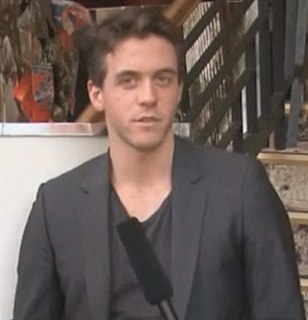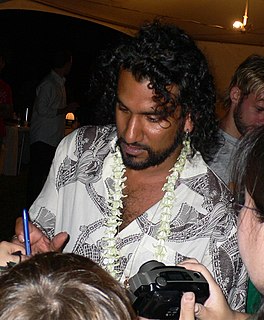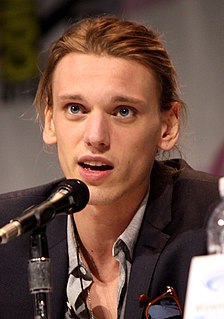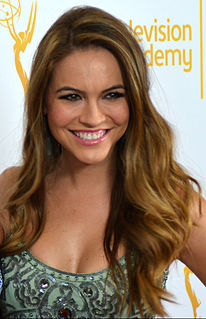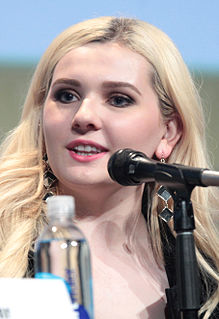A Quote by Michael Chabon
There's something inherently more appealing about the idea that you could reveal and tell stories about characters over the course of a TV season - 13 or 26 episodes, whatever it might be - than in the course of one two-hour movie. You can do so many more novelistic kinds of things on a TV show - with time, with gradual development of relationships, and so on - than you could possibly do in a movie. And that is very appealing.
Related Quotes
What's neat about TV is you get really rich, an opportunity to tell really rich stories over the course of 20 hours. Film is cool because it's an hour and a half to two hours. You go on an adventure and by the end it's all cleaned up. Maybe in a franchise you have three chapters of a great story but in TV you can really get deep. You have more time to tell stories so I would definitely not rule out doing television in the future because I think it's a great medium for telling stories.
Some TV shows are like really good novels in that there are enough episodes that you start to have your own feelings about how the characters should act. When the scriptwriters go slightly wrong, when they make the character make a left turn that he or she wouldn't do, you know enough about the characters to say, "No, that's not what she would do there. That's wrong." You can actually argue with a TV show in a way that you can't do as much with movie - you inhabit a TV show in the way you inhabit a novel.
In TV, you can really get into not only great characters, but also the relationships. There are all of the backstories and all of the relationships that you have with every person in your life, and the relationships those people have with each other. It's just more dense and there's more time to tell stories.
Maybe if I'd gone in younger, I wouldn't have had that feeling, but I've seen an enormous amount of changes since the early-'70s in how this stuff is shot. I did the first TV movie ever shot in 18 days; before this film the normal length of shooting a TV movie was between 21 and 26 days. We shot a full-up, two-hour TV movie in 18 days with Donald Sutherland playing the lead, who had never worked on television before.
I like the idea of doing a little movie every week. When you do a movie, you don't know when it's going to come out. In a year, you forget about it. I forget stories that happened on set. I forget who I worked with. I forget my lines, my characters' names. This is so fresh. We make it, and it's on TV. It feels more like a living, breathing thing.
Stuff that happens to you in your life when you're shooting a TV show, you have to be careful, because it might end up in the show. And that's what I think is the neat thing about TV: how alive it is, and how the writers respond to the stimulus that they're getting from the actual actors. Whereas a movie is more hermetically sealed.


